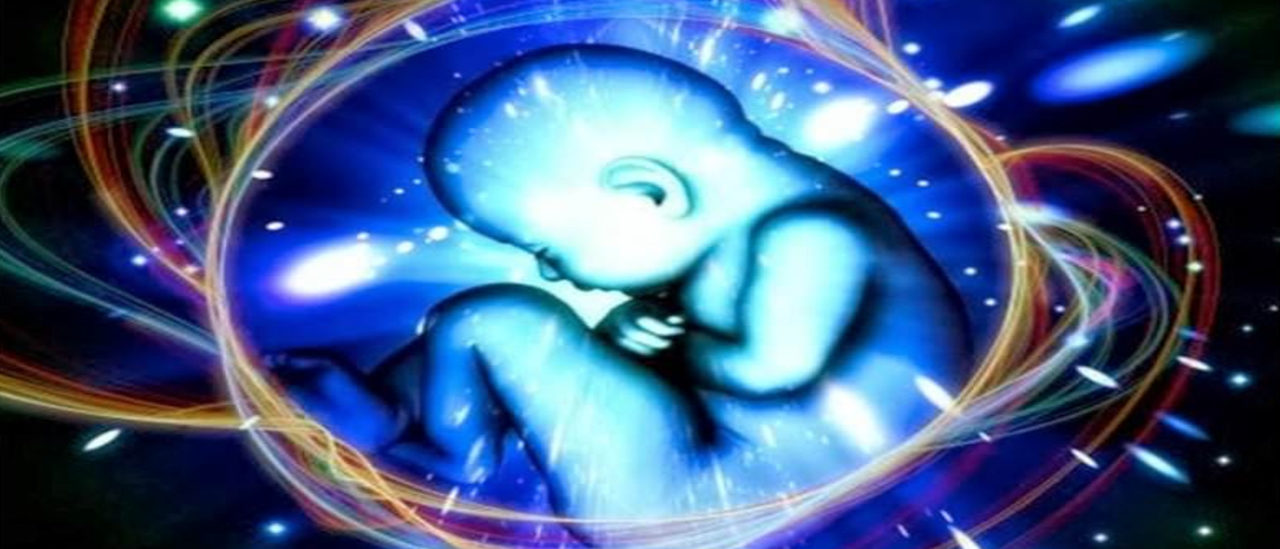And then you ask “Reincarnations?” Yes those. I am sure you’ve heard of them before. Don’t tell me you’re not familiar with concepts of Life after Death.. or are you? The concept of reincarnation is mostly a thing of the east, actually more like of the Indian subcontinent and westerners often scorn the idea of believing in that dead corpse to exist ever after. Found mostly in India and in Greece, and anciently in Egypt, reincarnation is the phenomenon of being born again with the soul inhabiting another physical form. It promotes mostly the concept of immortality of the soul. I believed against it too, but witness how beautifully the soul ascends in “The Journey of the Soul” and you are sure to know what and how the soul has gained that significance in Mythology. And Oh well! It’s no modern belief, Hindus believe that one of their most powerful gods, Lord Vishnu had many incarnation to save the earth. And so the science rests, till day and beyond. Other religions in India which believe sternly in reincarnations are Jainism, Buddhism and Sikhism but its mostly the Hindu Mythology which has given birth to the concept. Here is what you already know about reincarnations, or do you?
- Samsara: An unending chain

Samsara, as Hindus call it is the chain of life and death and rebirth in a new physical form. It combines together the repeated cycle of life alongside one’s actions of past and present and thereby pondering on the influence of those in the future. While samsara literally in a sanskrit word meaning ‘sansaar’ or the world but more literally and mythologically it is believed to be unending till the unity of soul with the living god or its master.
- The Journey of the soul

Hindus believe that it is only their physical form which is mortal and can be destroyed. Perhaps a reason Hindus, as a part of the death rites hit the head of the corpse in order to make him forget of him life went by to prevent the soul from being haunted with memories in the next birth. They believe the soul ascends to heights inaccessible to humans and it returns to live in a new body. They believe that the soul is immortal and it continues to live its life through one body into another.
- To Yield what you sow

Hindus are stern believers of the saying that you yield what you sow. They believe that one is reborn only to seek penance for his sins in his last birth or to do good and prevent his sorrows in the next birth. They are of the opinion that everything you do is accounted for and it’s here that you need to explain each action and repent for it if the need be, or rejoice in it as the occasion calls for. They are stern believers of the fact that you’ll reap the fruit of only your own actions or those of your ancestors and they are much the more sure that you’ve got a new birth only in association with your past life.
- Seven of your kind

Hindus believe in seven being a kind of holy number. Holy might not be the word but it’s mostly like 786 is for Muslims. They associate everything religious or holy with the number seven and hence they believe that every human gets seven chances to be reborn in the physical form of a man or woman and thereby gets the chance to commit good or evil and decide on its fate later. Those souls who do good in plenty are often associated with a journey to heaven after they have completed their seven lives whereas those who have sinned remain trapped in the concept of birth and death and rebirth.
- The Eye Opener: Third Eye

Hindus believe in absolute form of devotion and meditation. They believe in worldly renounciation to achieve their goals of uniting with the god. They’ve got in their mythology many incidents that illustrate how fairies and sylphs were always at a task of breaking the unending meditational offerings of saints like Vishwamitra. That said, Hindus believe that in the centre of their forehead is the third eye which opens when one unites the soul with god or becomes one with Brahma. They believe the soul remains trapped in samsara till man comes to a point of opening the third eye.
- Moksha: The concept of Salvation

It is only ironic how Hindus believe as much in reincarnation and life after death as they do in the concept of attaining salvation of moksha. Moksha they say is releasing of the soul to higher levels of spirituality so as to elevate the human form from samsara to immortality for they ascend to where they do not need to be trapped in the unending cycle of reincarnation. Moksha, they believe is a state of absolute peace of mind, body and heart and that they say is achievable only when man aborts all desires and renounces all worldly and materialistic ties. They say moksha comes only with service of God without seeking of it any rewards or with the desire to achieve salvation. Greed is only responsible for delaying the process of achieving Moksha and no longer suffer the endurances of Human Life.
- To Unload Burdens of Past Life

Hindus believe that every new life is only to repent for the sins done in the past life and to fulfil in some way the tasks which we left incomplete in the last. Hindus practise past life regression and most of their meditations are often linked to discovering the quests and sorrows of their past life and setting them right in this life so as to lift from their soul the burden of a hateful or irresponsible life. Every human being comes with their own bucket list decided by god and it is only when he’s done with all those tasks he is required to be a part of and has achieved in him the quest for absolute devotion would he entitled to unite with the god or his living master.
- Karma: The absolute truth that haunts

While you might believe that the phenomena is variously discussed already, the most stern believers in Karma or actions are the Hindus. They believe that life is given to achieve four goals namely kama or work, Dharma or moral life, Artha or material prosperity and Moksha or liberation or self actualization. Moksha comes only when your Karma is right. They believe the human life is ‘a transmigration of the soul according to the inevitable law of retribution’. While the transmigration is mostly debated on in Vedism and Brahminism, both equally stress on how the moral debit or debts keep you from achieving salvation. There are the fruits you reap for your action or Karma and Karma they believe spares none. Karma is associated not with the physical form which is mortal but the atmaa (soul) which is immortal.








